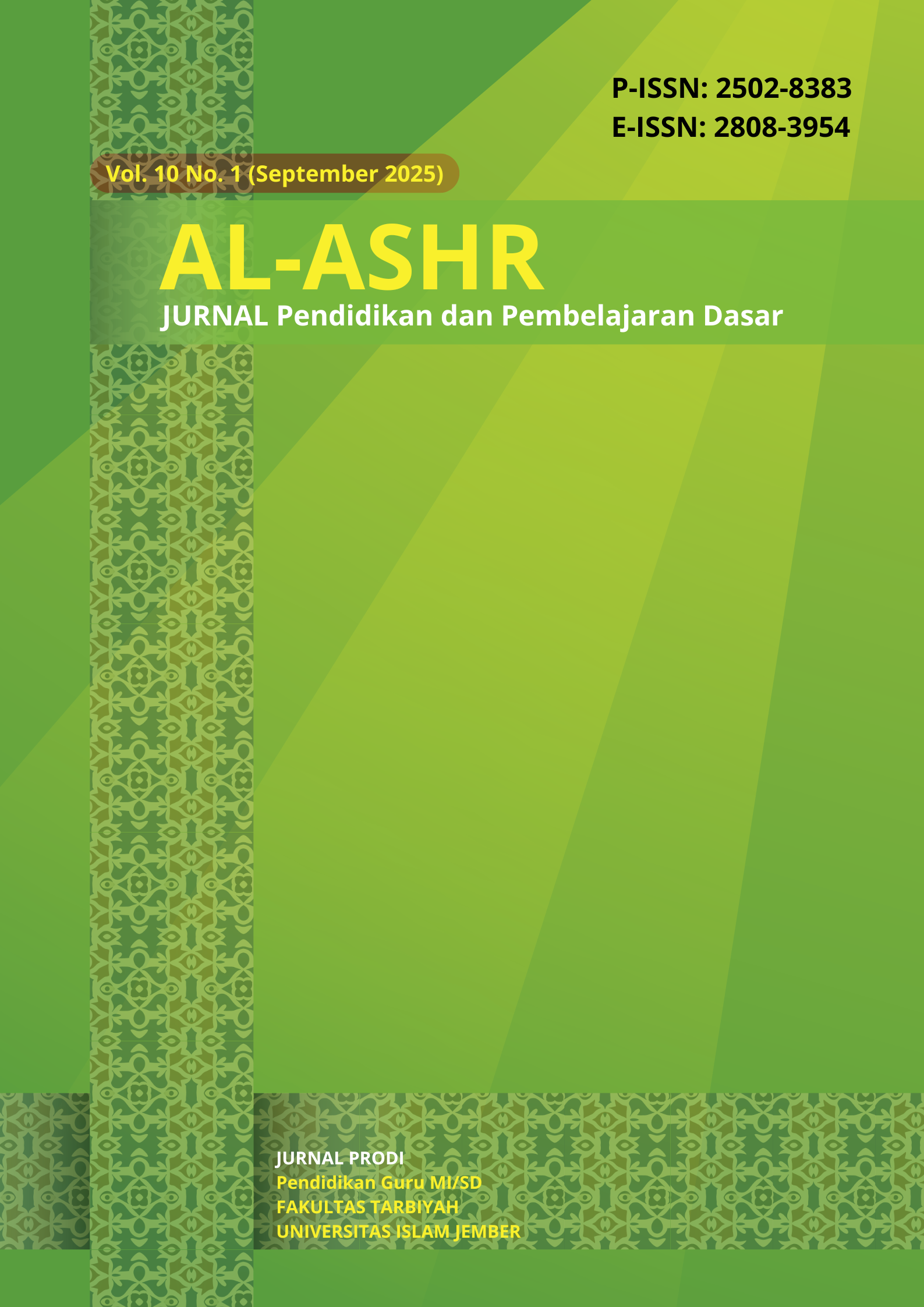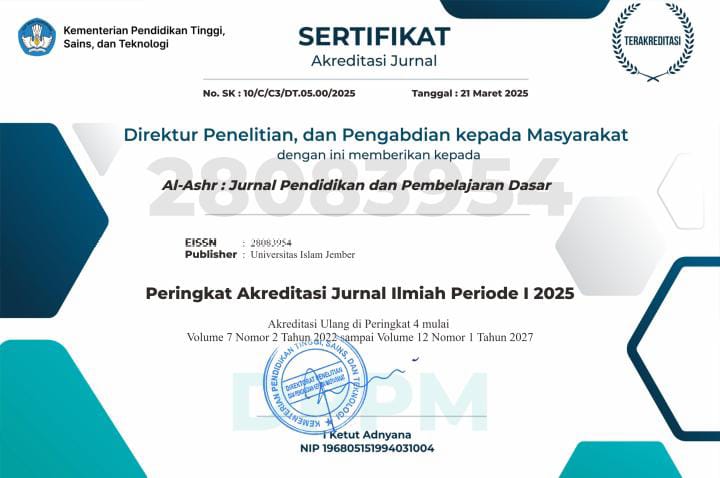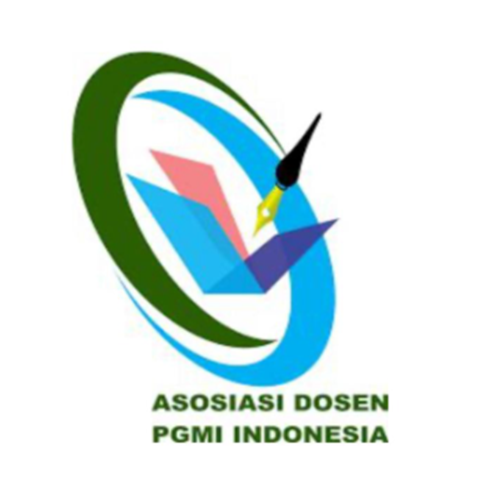THE ROLE OF ISLAMIC RELIGIOUS EDUCATION IN SHAPING STUDENTS SELF CONTROL AND MORALITY IN THE DIGITAL AGE IN PRIMARY SCHOOLS/MADRASAH IBTIDAIYAH
DOI:
https://doi.org/10.56013/alashr.v10i2.4793Keywords:
Islamic Religious Education in primary schools/madrasahs; Self-Control; Digital MoralityAbstract
This study examines the strategic role of Islamic Religious Education in primary schools/madrasahs in shaping students' self-control and moral character in the era of digitalisation. Using the Systematic Literature Review method with the PRISMA approach, this study analyses ten scientific publications from 2022-2025 that are relevant to the research theme. The findings show that the transformation of Islamic Religious Education methodology in SD/MI through the integration of digital technology can increase the effectiveness of learning and the internalisation of Islamic values. Moral education acts as a protective barrier against the negative impacts of technology, including digital addiction, cyberbullying, and moral degradation. Islamic Religious Education teachers in SD/MI have a strategic function as transformative facilitators who combine pedagogical-digital competencies with spiritual mentoring. The implementation of a holistic approach through multi-stakeholder collaboration between schools, families, and communities is key to shaping students' Islamic character while being technologically adaptive. The study recommends the development of a digital literacy-based PAI curriculum in SD/MI, the strengthening of teacher training programmes, and the establishment of a character education ecosystem that is responsive to the challenges of the digital age to optimise the role of PAI in shaping a generation with noble character.
Downloads
Published
How to Cite
Issue
Section
License
Copyright (c) 2025 Al-Ashr : Jurnal Pendidikan dan Pembelajaran Dasar

This work is licensed under a Creative Commons Attribution-ShareAlike 4.0 International License.














